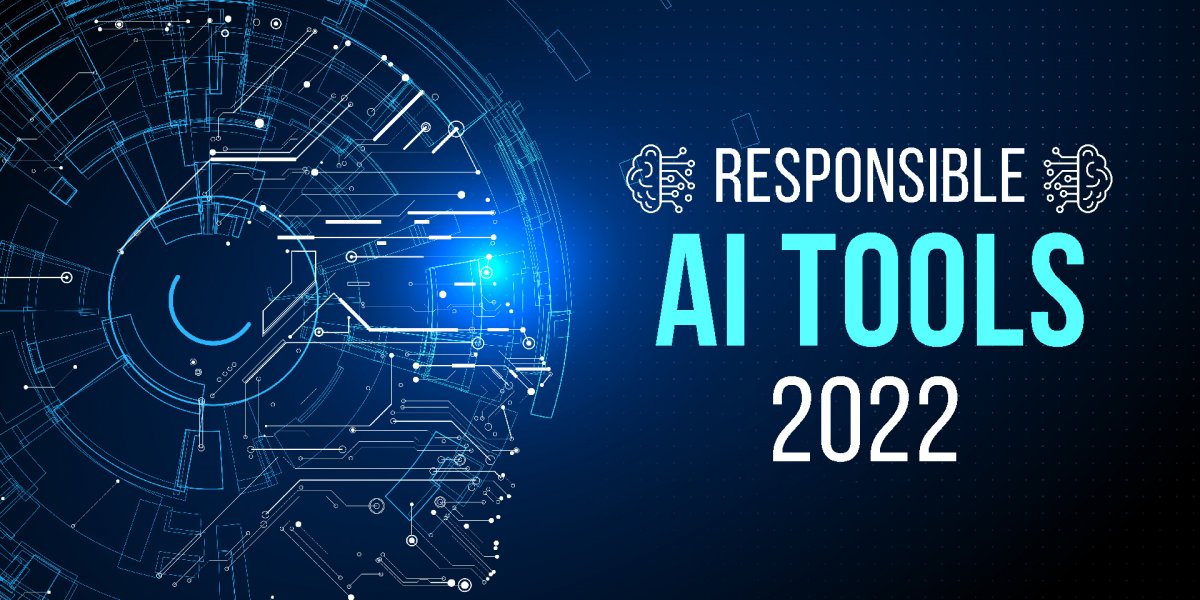Modern-day workplaces have transformed as a result of the adoption of artificial intelligence. The AI infrastructure in organizations drives innovation, growth, and development. There is no denying the fact that AI has resulted in a paradigm shift in the way we live and has simplified several things in everyday life. However, AI brings with it certain responsibilities as well. Every organization that uses AI needs to adopt responsible AI to boost innovation and growth. There are several AI tools available for organizations to choose from in order to implement responsible AI.
What is responsible AI?
Responsible AI, also known as ethical AI, is the practice that businesses and their employees need to practice to make an unbiased and unprejudiced impact on people and society. Responsible AI fills the gap in artificial intelligence systems, making them more transparent, reliable, and accountable.Implementing ethical AI helps to take care of organizational and societal issues of fairness, biasness, risks, privacy, legal compliance, and ethics by following a methodological approach. By following responsible AI practices using AI tools, organizations can overcome the existing challenges revolving around AI.
Here is the AI tools list that organizations can use to effectively implement responsible AI.
- Artificial Intelligence Fairness 360
- It is a comprehensive, open-source toolkit developed by IBM.
- The AI Fairness 360 artificial intelligence tool lets users identify and remove bias in machine learning models during the AI development cycle.
- The AI Fairness 360 toolkit developed by the researchers includes a comprehensive set of fairness metrics to test for biases in models and datasets.
This AI tool is ideal for developers and data scientists.
- Fawkes
- Fawkes has been developed by The SAND Lab at the University of Chicago.
- This AI tool is software and an algorithm that can function locally on the computer and allows individuals to limit the ability of third-parties to keep a watch on them.
- It makes image tampering possible for personal privacy.
- Fawkes makes it possible for users to create facial recognition models from publicly accessible photos.
- It protects individuals from unauthorized facial recognition models.
3..AdverTorch
- This Python toolbox is meant for adversarial robustness research.
- Developed by Borealis AI, this toolkit is meant to validate the robustness of ML models.
- It makes use of various attack and defense strategies to identify adversarial perturbations (attacks) which pose risks to ML applications in the real world.
4.. TextAttack
- This Python framework is meant for adversarial training, NLP data augmentation, and adversarial attacks.
- It helps create NLP attacks and uses them to improve the performance of the models.
5.. Fairlearn
- It is a Python toolkit meant for developers of artificial intelligence systems.
- Using Fairlearn, AI system creators can assess the fairness of the design.
- If any unfairness issues or problems are identified, they can be easily corrected.
- Fairlearn also has metrics for mitigation methods and model evaluation.
- It allows data scientists and developers to mitigate unfairness and make the AI system as fair and correct as possible.
- Quill
- This is one of the most popular artificial intelligence tools used by individuals who wish to incorporate artificial intelligence into their small business.
- This AI tool makes use of certain specific datasets and converts them into a written document.
- It helps to automate tasks such as the generation of earnings reports, etc.
- TensorFlow Privacy (TF Privacy)
- This is an open-source library developed by the Google Research team.
- TF Privacy contains TensorFlow optimizers, which can be used to train ML models on private data based on differential privacy.
- Model Card Toolkit (MCT)
- This toolkit helps streamline and automate the process of creating model cards.
- Model cards are ML documents that offer context and transparency to the development and performance of a model.
- Federated TensorFlow (TFF)
- This open-source framework for machine learning involves building a shared global model across multiple clients that participate and intend to keep the training data locally.
- TFF focuses on supporting experimentation and open research.
- Conversica
This AI tool is designed to connect with gross sales leads. It helps the sales team connect with sales leads and prospects multiple times, via two-way email conversations.
The use of various AI tools can help businesses and organizations ensure complete transparency and ethics of the AI systems, as well as protect data privacy and security.

